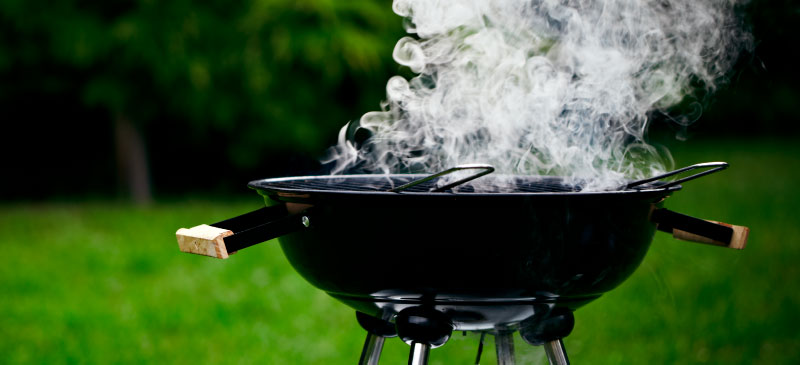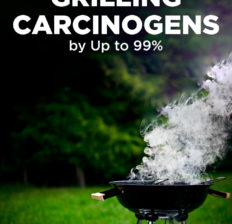This Dr. Axe content is medically reviewed or fact checked to ensure factually accurate information.
With strict editorial sourcing guidelines, we only link to academic research institutions, reputable media sites and, when research is available, medically peer-reviewed studies. Note that the numbers in parentheses (1, 2, etc.) are clickable links to these studies.
The information in our articles is NOT intended to replace a one-on-one relationship with a qualified health care professional and is not intended as medical advice.
This article is based on scientific evidence, written by experts and fact checked by our trained editorial staff. Note that the numbers in parentheses (1, 2, etc.) are clickable links to medically peer-reviewed studies.
Our team includes licensed nutritionists and dietitians, certified health education specialists, as well as certified strength and conditioning specialists, personal trainers and corrective exercise specialists. Our team aims to be not only thorough with its research, but also objective and unbiased.
The information in our articles is NOT intended to replace a one-on-one relationship with a qualified health care professional and is not intended as medical advice.
How to Lower Grilling Carcinogens by Up to 99%!
July 2, 2024

The topic of grilling carcinogens is probably the last thing you want to focus on while heading up for a summer cookout.
The truth is when you’re playing softball, enjoying a family picnic or watching fireworks, there’s a good chance you’re in front of a grill firing up some hot dogs, burgers, shrimp, ribs or even veggie kabobs.
Normally, we just write off this time as a once-per-year gorge fest, turning a blind eye to any health concerns as well.
Yes, your burger and bratwurst bonanza can pack on pounds and clog your arteries, but the good news is that summer cookouts don’t have to be bad for you in other aspects, such increasing your risk of cancer.
With just a few simple steps, you can not only avoid grilling mistakes and drastically lower the amount of grilling carcinogens hiding out in your meals, but you can make them taste much better, too.
What Are Grilling Carcinogens?
All meats have amino acids, such as creatine, and sugars. If you grill them at very high temperatures, though, those substances naturally produce molecules called heterocyclic amines (HCAs), toxic compounds also found in cigarette smoke.
We’ve known about these cancer-causing agents for years now.
We can’t change the fact that meat is composed of amino acids and sugars. It is what it is.
We also can’t change the fact that meat can form chemicals that are really, really bad for you.
What we can control is the total amount of HCAs we eat. The easiest way to do this is to control how well-done you take your meat and what kind of meat you eat.
- Well-done meat contains 3.5 times more HCA than medium-rare meat.
- When you compare different types of meats, sadly (and tragically), the highest concentration comes from bacon. The second highest is from fried pork, followed by beef and then chicken. (This particular study didn’t look at fish.)
Where the burn is best
This is great news for people who veg out at the grill. Feel free to singe away and flame it up.
Plants don’t have the combination of creatine and sugar found in meats — nor do they have the fat drippings that smoke up into the other grilling-induced carcinogens called polycyclic aromatic hydrocarbons.
Grilled pineapple is fabulous with a bit of sesame oil over it. We grill apricots and peaches in exactly the same way, and they’re luscious.
What if you’re a Meat-o-Phile?
Sure, you want to be healthy but … bacon. Yes, you want to consume fewer carcinogens but … ribs.
And you’d love to go all lean and green but … salmon.
The good news is cutting back on your carcinogens doesn’t mean you have to cut back on flavor, meat or even grilled meat.
Below are some simple and tasty suggestions to help you minimize your exposure to cancer-causing compounds before, during and after you grill.
Reduce Grilling Carcinogens
1. Pre-grill
The Cancer Research Center of Hawaii found that a teriyaki marinade reduced HCAs by 67 percent. A turmeric-garlic sauce reduced them by 50 percent.
The key here is to use a thin, vinegar-based sauce, sans sugar.
Compare that to a thick, concentrated commercial barbecue sauce with additive sugars, which can actually triple the number of HCAs in meat.
The researchers performed experiments to find out how herbs and spices can lead to HCA reduction in meats. Basil, mint, rosemary, sage, savory, marjoram, oregano and thyme possessed powerful anticancer action in grilled meats.
Most of these herbs are rich in three compounds — carnosic acid, carnosol and rosmarinic acid — all of which are potent antioxidants.
So be sure to include these tasty, cancer-fighting herbs in your marinade.
2. Mid-grill
You have many settings on your barbecue, but don’t opt for the blowtorch approach when it comes to grilling meat.
To avoid creating carcinogens, start on a medium-high temperature, and flip the meat often. This avoids charring, and that prevents HCAs.
Another great technique, in case you have multiple burners within your grill, is to grill up each side quickly, and then turn off the burner that lies directly under the meat while keeping the other burners on.
That basically transitions your grill into an oven.

3. Post-grill
Once you’ve cooked the food, there is one very common-sense thing you can do to maximize flavor and minimize carcinogens: Don’t eat char.
Think about it. Char.
It’s just burnt meat. It’s carbon.
I know you like the idea of going all caveman with your singed side of mammoth, but char doesn’t even have any flavor.
Don’t eat it — cut it off.
If you do this one simple thing, you’ll eliminate many of the HCAs that do form despite your marinade protection.
Conclusion
Even briefly marinating foods is effective in reducing the amount of carcinogens — in some cases by as much as 92 percent to 99 percent.
As a rule, use about one-half cup of marinade for every pound of food — although large pieces may need more to cover the food’s surface adequately.
The amount of marinating time is up to you because it only takes a few minutes to get the full cancer-preventing effect.
Longer times will just add more flavor — good health has never been so tasty.
By going low and slow and refusing to eat char, you’ll be able to get outside, grill and add flavor to your barbecue without compromising your health.

Will Clower, Ph.D., is the founder & CEO of Mediterranean Wellness and has worked with companies all over the world to improve the health of their employees by providing the tools they need to incorporate the Mediterranean dietary habits into their daily lives.
Dr. Clower, author of The Fat Fallacy and The French Don’t Diet Plan, applies his neuroscience doctorate to explain how the Mediterranean culture can help people lose weight, improve heart health and liver longer. He applies this behavioral neuroscience training to the science of eating behavior.
Dr. Clower’s work has been featured on Dr. Oz, The View, Fox News, MSNBC, CBS, ABC, USA Today, New York Times and Readers Digest.




